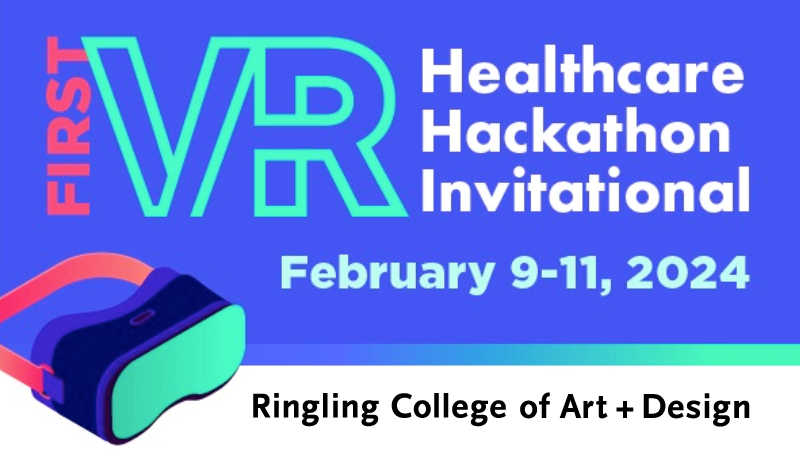Ringling College of Art and Design is set to host the first Virtual Reality Healthcare Hackathon Invitational this year, from Feb. 9 at 6 pm to Feb. 11 at 3 pm. The College will be joined by peer institutions, each represented by teams of three students from both undergraduate and graduate schools. Each student team will be paired with one of the developers and one healthcare practitioner.
For three days, the teams will work together to come up with an idea or product to support and improve the needs of healthcare professionals. At the end of the hackathon, the teams will present their ideas to a panel of judges, where they will compete for prizes.
Student teams will be participating from the following colleges and universities:
- Arizona State University
- Cornell University
- George Washington University
- Ohio University
- University of Mississippi Medical Center
- University of South Florida
- Ringling College of Art and Design
- Santa Clara University
Professional healthcare practitioners and professional developers will be on hand to participate on teams, as well as several floating mentors and judges with a mix of developer and healthcare backgrounds.
Supporting Sponsor Organizations include:
- AMXRA
- Virtual World Society
- FundamentalVR
- CrossComm
- XRHealth
Two of the mentors and judges will be Dr. Mark Zhang, the new Chief Innovation Officer for the Veterans Health Administration, and Dr. Jo Ann Difede from Cornell University.
In 2019, the Virtual Reality Development program collaborated with Moffitt Cancer Center in Tampa to develop virtual reality animations to educate patients and produce training videos for physicians. Using their designs, patients preparing to receive radiation treatment are able to experience what it will be like before starting the treatment, therefore alleviating many fears and anxieties surrounding the process.
The International Virtual Reality and Healthcare Association (IVRHA) is a member-driven organization comprised of entities throughout the healthcare ecosystem, including technology companies, teaching hospitals and universities, as well as healthcare providers and insurance companies. IVRHA’s mission is to facilitate and support the growth of virtual reality in health and life sciences.




